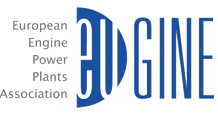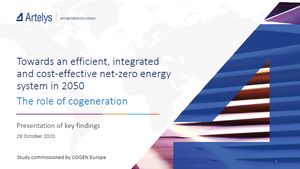Cogeneration in 2050 – an Untapped Potential
05 January 2021
Cogeneration or, as it is also called, combined heat and power (CHP), can help users achieve significant savings and is a cost-efficient solution to help Europe decarbonize, while also enhancing the reliability and flexibility of a renewables-based, highly electrified and integrated energy system. Those are the main takeaways of a study commissioned by COGEN Europe and 26 other partners including EUGINE.
Taking a use-case perspective, the study shows that gas-engine CHP is especially efficient when used in microgrids, district heating and for medium-temperature industrial heat, helping users make significant savings in heating and other electricity network-related costs. While, for district heating, savings range between 0.6 EUR and 4.5 EUR/MWh, if used in medium-temperature industrial heat, savings go from 3.1 EUR up to an impressive 14.3EUR/MWh.
From a system perspective, the study shows an important cost-effective potential for highly efficient cogeneration in a 2050 carbon-neutral energy system. In a scenario with a higher share of renewable gases and less nuclear, CHP helps the system save 8.2BEUR each year, mainly by helping Europe reduce its global energy demand.
In showing that there is cost-effective potential for further CHP deployment to support a highly electrified and low demand energy system, this study is a welcome complement to the European Union’s own modelling, which so far has largely overlooked the benefits of efficiently combining heat and power as an enabling solution.
It can be hoped that this work will help EU policymakers fully consider the role of CHP in all sectors to achieve the European Green Deal objectives and set an enabling framework allowing CHP users to fully reap its various benefits.


